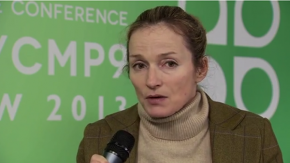Sevilla’s Financing Commitments: Another Grand Declaration, or the Moment We Finally Change the Rules?
Guest blog by Stephanie Hodge , UN Partnerships SpecialistSevilla, Spain, July 2025. Another UN conference has ended, another lofty declaration adopted—this time the “Sevilla Commitment,” promising to mobilize trillions in financing, tackle the debt crisis, and give developing countries a stronger voice.
We’ve been here before. Monterrey in 2002, Doha in 2008, Addis Ababa in 2015—each was billed as a turning point. Each offered earnest compacts to rebalance a system skewed against the Global South. And each failed to deliver the structural change that sustainable development demands.
If we are honest, the problem has never been a shortage of ideas. It has been a shortage of courage to challenge the entrenched interests that profit from the status quo.
The evidence is clear. As leaders applauded the Sevilla Platform of Action, 3 billion people lived in countries spending more on debt repayments than on health or education. In 2024 alone, low- and middle-income countries paid $443 billion servicing external debt—more than four times what they received in climate finance. Meanwhile, 40% of multinational profits continued flowing to tax havens, draining public budgets while inequality widened.
Yet Sevilla offered no binding sovereign debt workout mechanism to replace ad hoc restructuring controlled by creditors. No new global tax body to enforce rules on avoidance and evasion. No credible roadmap to reverse the decline in official development assistance.
Instead, we got a familiar patchwork: dozens of voluntary initiatives, technical assistance platforms, pilot facilities for blended finance. All of them worthy—but together, still less than the sum of their parts.
The truth is this: piecemeal fixes cannot repair an architecture designed to protect creditors and the wealthy. What is needed now is systemic change.
First, a binding sovereign debt workout framework under UN auspices—so that no country must choose between educating its children and paying off creditors.
Second, a universal tax compact with a global minimum effective rate and enforceable measures against secrecy jurisdictions—because closing the financing gap is impossible while profits vanish offshore.
Third, a reallocation of governance power in the IMF and World Bank, so that developing countries can help shape the policies that determine their futures.
Fourth, a global SDG financing platform to consolidate the proliferation of instruments and ensure transparency over where the money goes—and whether it reaches those who need it most.
And finally, a legally binding solidarity contribution on carbon-intensive consumption and financial transactions—so that climate adaptation and social protection are funded by those with the greatest means and greatest responsibility.
If Sevilla is to be more than a ceremonial change is needed





Comments
Post a Comment